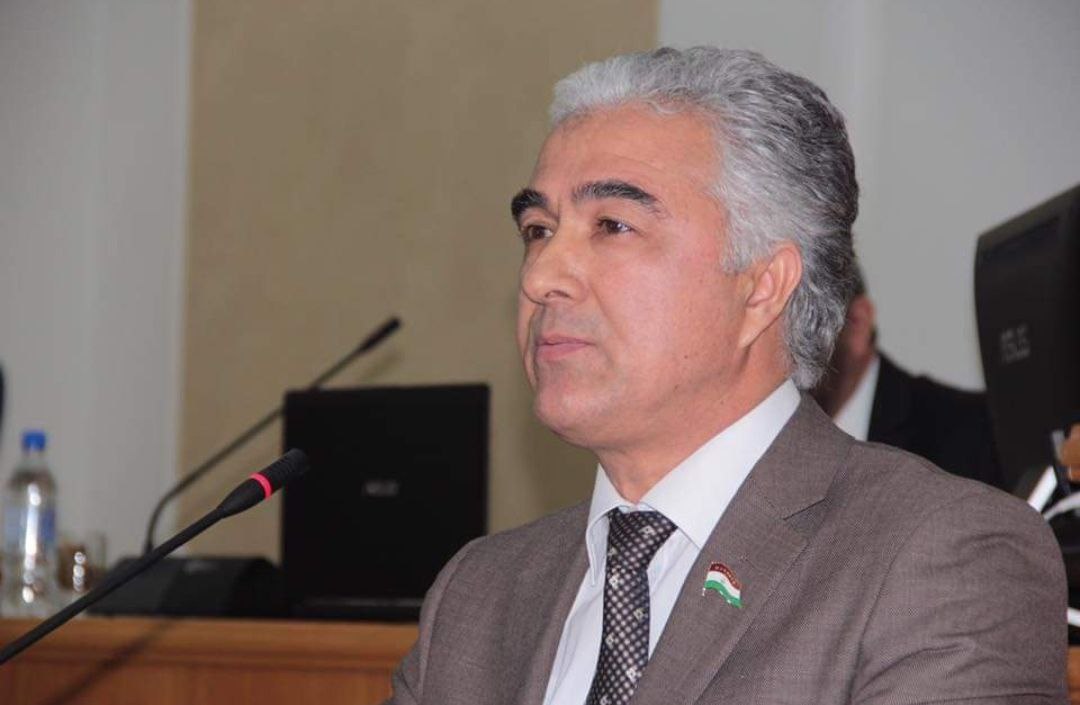Arrests follow attempted coup in Dusanbe
Behind the arrest in recent weeks of the former deputy leader of the Democratic Party Saidžafar Usmonzoda and other well-known personalities in Tajik society is the accusation of trying to overthrow President Rakhmon. But among analysts few believe in an action with a chance of success and some fear a ploy to get rid of a figure no longer serving their interests.
Dušanbe (AsiaNews) - Information on the attempted coup d'état in Tajikistan, which led to the arrest a few weeks ago of Saidžafar Usmonzoda, now a former member of parliament and leader of the Democratic Party, accused of trying to seize power from President Emomali Rakhmon, is beginning to become more precise. According to the prosecutor's office, ‘in order to realise his criminal design, Usmonzoda enlisted a number of people from different social categories in the country and abroad among his supporters, asking the representative of a foreign state for USD 10 million to organise protests among the population’.
After Usmonzoda, other well-known personalities in Tajik society were arrested, and it is not yet known how these measures are connected, but it is thought that there was indeed a plan to bring about the overthrow of the current power. Tajik political scientist Aziz Nurulloev, who currently lives in the USA, commented in an interview with Radio Ozodi that ‘among the groups that have some influence within Tajikistan, the need for changes in the political and social framework has been growing for some time, as the monopolisation of all resources in the hands of the various clans or individual regions leads in one way or another to the current system of Rakhmon rule, and inevitably leads to conflicts of interest’.
Other experts such as Temir Umarov, an associate at the Carnegie Centre in Berlin, strongly doubt the possibility of a successful coup in Dushanbe. According to Umarov, authoritarian regimes often use this kind of accusation to get rid of inconvenient or dangerous characters for the state, or even just those in possession of important and secret information.
‘In all likelihood, one can speak here of an agreement that could not be realised, and at a certain point Usmonzoda, who had always been loyal to Rakhmon before, became superfluous to all parties in the conflict,’ Umarov explains.
Nurulloev notes that ‘in the current political situation in Tajikistan, there is no personality or organised group capable of expressing truly independent positions’, and even among all those arrested in recent days, no one can aspire to this image.
Not even in the past have there been any protagonists capable of launching credible challenges to the system, and in the context of an even stricter control as at present, it is hard to see who could embody the hopes of real change.
Almost all analysts agree in this pessimistic view, although one political scientist who asked to remain anonymous stated that ‘today's non-ordinary conditions can move people unknown to the general public to organise unpredictable actions’. Some politicians such as the former chairman of the Democratic Party, Makhmadruzi Iskandarov, the leader of the unregistered ‘New Tajikistan’ party Zaid Saidov, the leader of the social-democratic party Rakhmatillo Zoiroda or the leader of another unregistered party Tarakkiet, Sulton Kuvvat, all rather harmless to Rakhmon's power, who did everything possible to exclude them from the political arena or lock them behind bars.
Usmonzoda might have gained some consensus at least for a short time, as he was a political figure who enjoyed a great deal of credibility, turning his loyalty to the president into a pointed criticism of his decisions. Such a change of leadership, most observers believe, would only have been possible with strong external support from one of Tajikistan's ‘protector’ countries, such as Russia or China.
One of the main opponents abroad, Šarofiddin Gadoev, vice-president of the National Alliance of Tajikistan, immediately after Usmonzoda's arrest spoke of a certain general who would offer the military's support on the grounds that ‘Russia would like the formation of a new government in the country’. Umarov and other experts do not believe that it suits Moscow to destabilise the situation in Tajikistan by removing a Putin loyalist like Rakhmon; but perhaps not all the factors at play have yet come to light.







.png)










